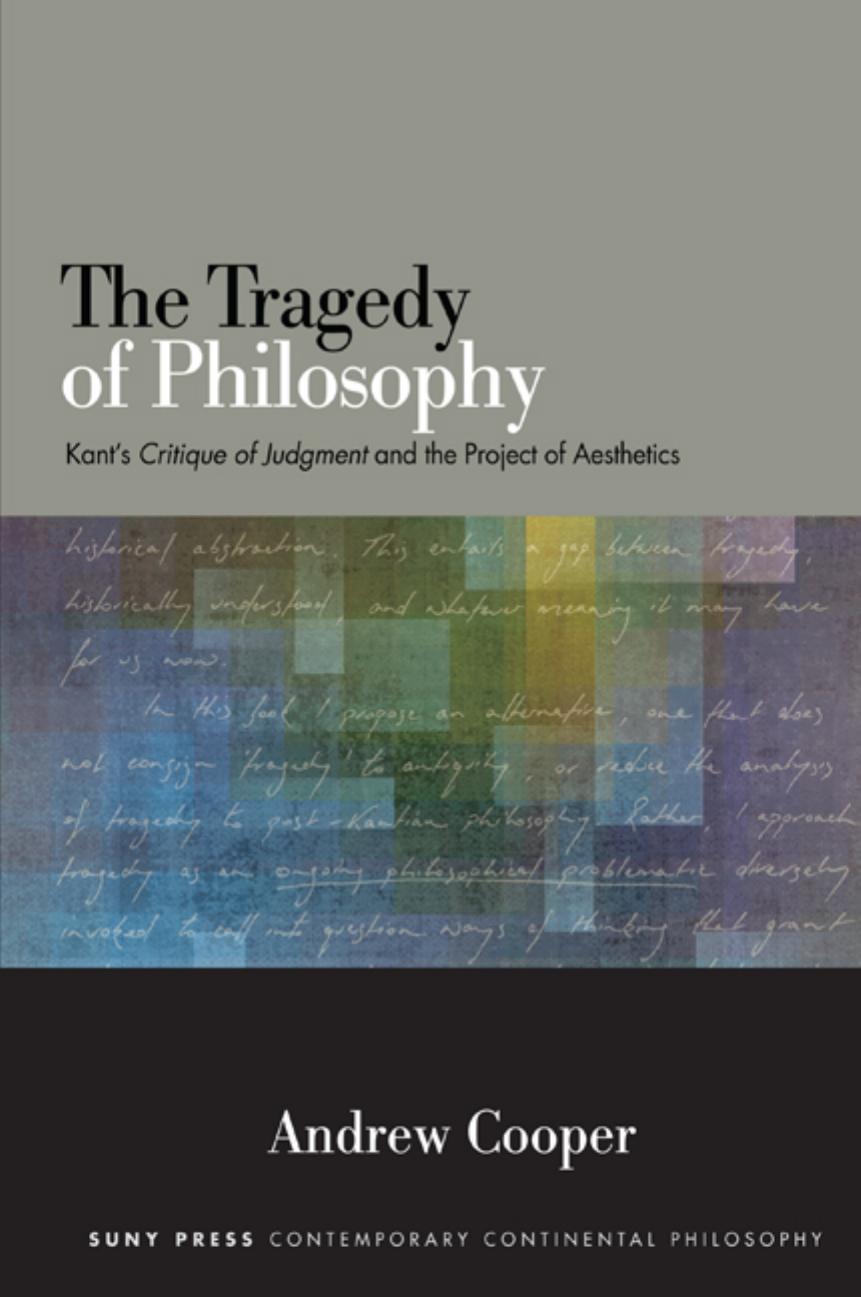The Tragedy of Philosophy by Andrew Cooper

Author:Andrew Cooper
Language: eng
Format: epub, pdf
Publisher: State University of New York Press
Published: 2016-06-14T16:00:00+00:00
Tragedy and ethics
Both Schopenhauer and Nietzsche grappled with philosophical questions dominated by Hegel’s work. In this context, both sought to divorce aesthetics from ethics. One of the basic reasons that Nietzsche and Schopenhauer sought this separation is that they perceived their own times as a decline of world culture. For Nietzsche at least, this decline announced the failure of Kantian ethics and Hegelian dialectics and demanded something new. Yet as Czech poet Czeslaw Milosz suggests, while the cultural shifts of Nietzsche’s lifetime were indeed significant, Nietzsche “did not experience the rapid and violent changes of the next century, whose only possible analogy may be the time of the Peloponnesian war, as we know it from Thucydides.”32 Milosz suggests that during the early twentieth century, especially in the tumultuous years following the First World War, philosophers did not only find Hegel’s attempt to fuse history and ethics inadequate to make sense of their times, they also found Nietzsche’s separation of the aesthetic and the ethical unable to provide a way of thinking through new ethical demands. For example, Franz Rosenzweig criticized both Hegel and Nietzsche, outlining a new kind of philosophy that he called “the new thinking” (das neue Denken). As Peter Gordon notes, Rosenzweig’s new school aims to recognize “the philosophical merits of modernity since Nietzsche.”33 Yet far from advancing the progressive claims of modernity, Rosenzweig draws upon Judaism in search for a philosophy that is oriented substantively upon nature and yet renounces the metaphysical drive toward knowledge, thereby opening a way of knowing based on interpersonal communication.
In his major work, The Star of Redemption (1921), Rosenzweig provides an important response to Nietzsche’s interpretation of tragedy for my argument in this book. While his central focus is to critique Hegelian thought through resources drawn from the Jewish tradition, he proposes to do this by going through Nietzsche, by reading Nietzsche as an epochal voice in world history.34 The importance of Rosenzweig’s proposal for my argument is that it calls Hegel’s understanding of tragedy into question through Nietzsche’s philosophy, opening the way for Heidegger and Castoriadis to search for a path beyond Nietzsche through reconsidering the importance of tragedy to philosophy. He achieves this, I suggest, by returning to Kant’s emphasis on the singularity of works of art.
From the disquieting opening lines of The Star of Redemption it is clear that Rosenzweig saw his new thinking in continuity with Nietzsche’s philosophy. He begins by connecting the Western project of metaphysics to the fear of death: “it is from the fear of death that all cognition of the All begins. To cast off the fear of the earthly, to remove from death its poisonous sting, from Hades its pestilential breath, in this Philosophy deceives itself” (SR 9).35 Philosophy aims to justify the transitory nature of experience by flying free from death through speculation. The human capacity for self-deception is enhanced to such a degree through the power of philosophy that it is only revealed when the individual is confronted with death as a real possibility.
Download
This site does not store any files on its server. We only index and link to content provided by other sites. Please contact the content providers to delete copyright contents if any and email us, we'll remove relevant links or contents immediately.
The remains of the day by Kazuo Ishiguro(8964)
Tools of Titans by Timothy Ferriss(8359)
Giovanni's Room by James Baldwin(7315)
The Black Swan by Nassim Nicholas Taleb(7097)
Inner Engineering: A Yogi's Guide to Joy by Sadhguru(6783)
The Way of Zen by Alan W. Watts(6590)
Asking the Right Questions: A Guide to Critical Thinking by M. Neil Browne & Stuart M. Keeley(5751)
The Power of Now: A Guide to Spiritual Enlightenment by Eckhart Tolle(5741)
The Six Wives Of Henry VIII (WOMEN IN HISTORY) by Fraser Antonia(5493)
Astrophysics for People in a Hurry by Neil DeGrasse Tyson(5172)
Housekeeping by Marilynne Robinson(4433)
12 Rules for Life by Jordan B. Peterson(4298)
Double Down (Diary of a Wimpy Kid Book 11) by Jeff Kinney(4257)
The Ethical Slut by Janet W. Hardy(4236)
Skin in the Game by Nassim Nicholas Taleb(4232)
Ikigai by Héctor García & Francesc Miralles(4229)
The Art of Happiness by The Dalai Lama(4118)
Skin in the Game: Hidden Asymmetries in Daily Life by Nassim Nicholas Taleb(3986)
Walking by Henry David Thoreau(3949)
